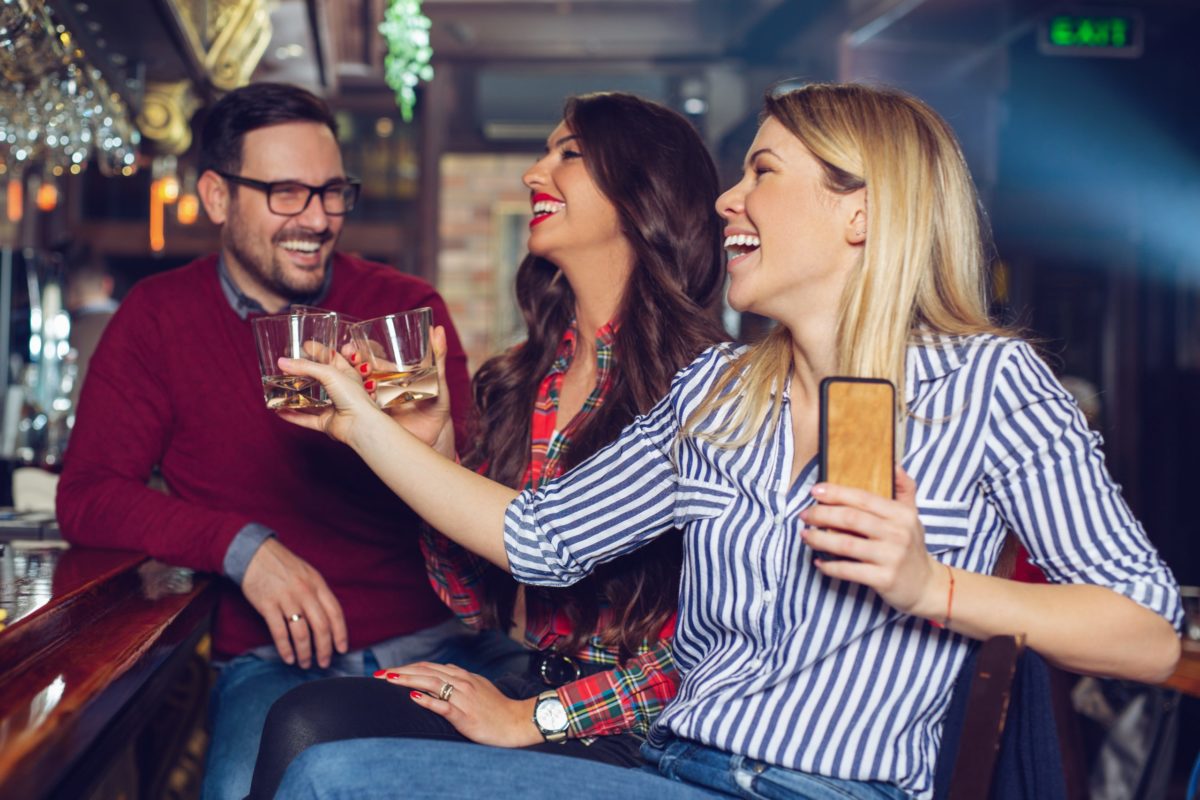
Are you a ‘grey area’ drinker?
Are you familiar with the silent conversations with yourself about drinking? The anxiety, worry, regret & remorse after a night that went from a casual work dinner to shots at a bar at midnight to not remembering leaving or how you got home? Fretting about what you might have done or said and having to wait for your friend at work to wake up and tell you that everything was fine?
You probably don’t even drink every day but when you do you wake up in the early hours of the morning feeling anxious, recounting the night before. But you get up, go to work and function pretty well during the day. You go for a run or to the gym, eat a balanced diet or exhibit other “healthy” lifestyle choices. Other days though, you experience wasted mornings and weekends, you cancel plans, feel hungover and angry. Other people don’t know about these days though, they don’t see your sleepless nights, your self-loathing, your racing, anxious mind. What goes on internally regarding your drinking is not what you present externally.
You drink just like everyone else in your work and friendship groups and to others your drinking doesn’t look problematic. If you spoke to them about it, they might say, “You don’t have a problem, why are you worrying so much about this?”. So you tell yourself you’re not that bad. There are others who are way worse. You say things to yourself like “why be so restrictive?” and “surely I can do moderation”. You might not have experienced any really negative consequences from your drinking like losing your job, partner or had a DUI but you know deep down that it is not healthy and it is stopping you from having the life you want.
You go between ignoring the voice in your head that knows you need to stop drinking and deciding that you are over-thinking it and you should just enjoy life. You aren’t an alcoholic but you aren’t an ‘every now and then’ drinker either. You drink between the two extremes. If this resonates with you, like millions of others, you might identify as a ‘grey area drinker’, a term originally coined by Joline Park, a former grey area drinker herself. I was one too.
So many of us want to reduce or stop drinking altogether, we know how bad alcohol is for our health so why is it so hard to stop? The answer is the perfect mix of unconscious conditioning & the fact that it’s addictive. We live in an alcohol saturated culture. Most of us are taught by our parents from as young as babies and by society that alcohol is the ‘elixir of life’. Alcohol is the only drug you have to justify not taking, which if you think about it is just crazy! So if you make up one of the many people who want to cut down or stop drinking but haven’t been able to yet you are not alone and it isn’t your fault.
I could go on forever describing how we all got here but instead I thought I’d give you some practical tips on reducing the amount you drink.
- Mirroring is the subconscious replication of another person’s nonverbal signals. For example, when you are having a coffee with a friend and they lean back in their chair, you will mimic that and do it too. Or when someone you are speaking to touches their face or crosses their arms, you will too. We all do it. It takes place in everyday interactions and often goes unnoticed by both the person enacting the mirroring behaviours as well as the individual who is being mirrored. What does this have to do with drinking? Well, every time your friend or colleague has a drink you will too. So if you have a partner or friends who are big drinkers, this is not a good thing. You end up drinking far more than you would have otherwise. So what can you do? Drink placement! If you are drinking, always have a water or non-alcoholic drink as well. If you are at a table and are right handed, have your non-alcoholic drink in front of your right hand and your alcoholic drink in front of the left hand side. This way, every time your friend has a drink you will pick up the drink closest to your preferred hand which will be the non-alcoholic drink.
- Always take a non-alcoholic drink that you really like with you. You are probably more likely to drink that than you are water. I love ginger kombucha probably more than any alcoholic drink so I take a bottle of that to dinners or bbqs. Leave it out on the table, just like we would do with wine, so you don’t forget you have it.
- Always eat with drinks. It is super annoying that we have a culture that goes to “drinks” before we go to dinner. This is a trap! 20% of alcohol is absorbed through the stomach straight into our blood stream so if your stomach is empty this happens very quickly which means you will feel the effects very quickly. It usually leads to drink #2 then #3 happening much quicker. Make sure you eat something preferably before drinking or if you can’t, at the same time just to slow down the alcohol being absorbed.
- Don’t drink in rounds! This leads to drinking more than you had planned.
- Try planning catching up with people at places or times that don’t usually involve alcohol. Like breakfast, or the beach, or going for a walk.
- Change your after work routine. Try a new hobby or do some exercise after work so you avoid the after work drinks. You might be surprised that your colleagues, friends or partner might also be interested in this – it just takes someone to suggest it. Friday after work in particular is a hard one so try and lock in a regular activity then. A game of tennis, a sunset swim or even volunteering somewhere will either result in delaying the starting time of drinking or not drinking at all – both great outcomes!
- Limit how much alcohol you keep in the house. Easy access is the ultimate enabler!
- Have appealing non-alcoholic drinks at home and don’t be afraid if they contain sugar! I often have clients say they can’t find a healthy alternative to alcohol or one that doesn’t contain sugar. My response is that alcohol contains calories too – what about those? A lemon lime and bitters has approx. 29 calories per 100mls and a wine has 80 per 100mls. Yes, a lemon lime and bitters is far from being a health drink but a tasty drink in moderation to replace alcohol can really help you cut down or stop drinking.
- Find a new hobby that you love. This will mean you are more likely to go and do that hobby and refrain from drinking. When you are doing something you really love you will get a dopamine response which will make you feel good, similar to what happens when you drink. You will also stimulate your parasympathetic nervous system which will help your body relax. If you are someone who likes a drink to quieten the noise in your head then being in a more relaxed state should reduce the craving for alcohol.
- Download a support app such as Day Break or join a local non-drinking social group to meet like-minded others who also want to reduce or quit drinking.
Many of us grey area drinkers, me included, tried to do the whole moderation thing for years. Some people can do it but some of us can’t and if you feel like you really are ready to give it up and would like some help doing it please get in touch. Being free from alcohol is one of the best things I have ever done. The process we go through shines a light on exactly what alcohol is and does to your body and undoes the unconscious conditioning which means you don’t feel like you are missing out.
If you have a dependence on alcohol please seek the help of a medical professional so you can detox safely. Your local GP can refer you to either public or private withdrawal management centres.


